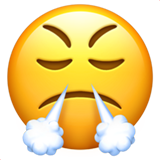If you can't find info, the proctors can't.
Fossils B/C
-
jennarholt

- Member

- Posts: 12
- Joined: Mon Dec 31, 2018 7:57 pm
- Division: C
- State: NC
- Pronouns: She/Her/Hers
- Has thanked: 1 time
- Been thanked: 0
Re: Fossils B/C
Alright, weird question time! So, it's my first year in division C, and we did really good at regionals and states last year, but I'm wondering what the differences between division C fossils and division B fossils would be?
Anything along the lines of what they ask about would be great, for example if they focus more on identification or the time scale, or is it just random?
Thanks!
Anything along the lines of what they ask about would be great, for example if they focus more on identification or the time scale, or is it just random?
Thanks!
2023: Rocks and Minerals, Dynamic Planet, Cell Biology
2022: Rocks and Minerals (R.2nd, St. 3rd)
>2021: Fossils was the love of my life. Some days I can still hear its call...
2022: Rocks and Minerals (R.2nd, St. 3rd)
>2021: Fossils was the love of my life. Some days I can still hear its call...
-
hmmm

- Member

- Posts: 139
- Joined: Thu Jan 10, 2019 2:33 pm
- Division: C
- State: NJ
- Has thanked: 12 times
- Been thanked: 4 times
Re: Fossils B/C
Same thing, just harderjennarholt wrote: ↑Fri Dec 06, 2019 10:17 am Alright, weird question time! So, it's my first year in division C, and we did really good at regionals and states last year, but I'm wondering what the differences between division C fossils and division B fossils would be?
Anything along the lines of what they ask about would be great, for example if they focus more on identification or the time scale, or is it just random?
Thanks!
Community 2017-2019
WWP North 2019-2020
2nd Place Water Quality 2019
2019-2020:
Dynamic Planet, Fossils, Ornithology, Water Quality
Wiki Userpage
Constantly Late Sassy #142
WWP North 2019-2020
2nd Place Water Quality 2019
Rocks and Minerals, Ecology
Disease Detectives, Fossils, Game On, Water Quality
Dynamic Planet, Fossils, Ornithology, Water Quality
Wiki Userpage
Constantly Late Sassy #142
-
ChimpLopez
- Member

- Posts: 51
- Joined: Thu May 09, 2019 5:06 am
- Division: C
- State: PA
- Has thanked: 0
- Been thanked: 1 time
Re: Fossils B/C
Ok, so my partner an I always struggle with those questions that are like "list these events in which came first in geologic time". We can get them right eventually, it just takes a decent portion of the station. Any tips on how to speed up this process? I was thinking about making a master list of events, personally.
I also go by Chino.
2017-2018 Events: Herpetology, Ecology
2018-2019 Events: Herpetology, Fossils, Dynamic Planet, Geologic Mapping
2019-2020 Events: Ornithology, Fossils, Protein Modeling
Red Sweatshirt Guy (RSG)
2017-2018 Events: Herpetology, Ecology
2018-2019 Events: Herpetology, Fossils, Dynamic Planet, Geologic Mapping
2019-2020 Events: Ornithology, Fossils, Protein Modeling
Red Sweatshirt Guy (RSG)
-
Havocgamer49

- Member

- Posts: 38
- Joined: Mon Sep 16, 2019 3:28 pm
- Division: C
- State: NC
- Pronouns: He/Him/His
- Has thanked: 2 times
- Been thanked: 1 time
Re: Fossils B/C
Me and my partner have a nice, organised chart with w/ 2 columnsChimpLopez wrote: Ok, so my partner an I always struggle with those questions that are like "list these events in which came first in geologic time". We can get them right eventually, it just takes a decent portion of the station. Any tips on how to speed up this process? I was thinking about making a master list of events, personally.
1. Time (we normally go in periods except for the carboniferous)
2. The major events that happened, going from top(near the end) to bottom(near the beginning)
This has made it much quicker for us to do the stations that you mentioned.
Havocgamer49's Userpage
Jay M Robinson Varsity Team 2017-2020
2017-2018 Events: Disease Detectives, Rocks and Minerals
2018-2019 Events: Disease Detectives, Duct Tape Challenge, Fossils
2019-2020 Events: Disease Detectives, Fossils, Mission Possible, Reach for the Stars
Jay M Robinson Varsity Team 2017-2020
2017-2018 Events: Disease Detectives, Rocks and Minerals
2018-2019 Events: Disease Detectives, Duct Tape Challenge, Fossils
2019-2020 Events: Disease Detectives, Fossils, Mission Possible, Reach for the Stars
Re: Fossils B/C
For the phylum hemichordata will the test only ask about graptolites or the whole phylum?
-
ChimpLopez
- Member

- Posts: 51
- Joined: Thu May 09, 2019 5:06 am
- Division: C
- State: PA
- Has thanked: 0
- Been thanked: 1 time
Re: Fossils B/C
The phylum is on the list, so it would be valid to ask questions about the whole phylum, but I would expect the test makers to mostly ask questions concerning the two orders listed.
I also go by Chino.
2017-2018 Events: Herpetology, Ecology
2018-2019 Events: Herpetology, Fossils, Dynamic Planet, Geologic Mapping
2019-2020 Events: Ornithology, Fossils, Protein Modeling
Red Sweatshirt Guy (RSG)
2017-2018 Events: Herpetology, Ecology
2018-2019 Events: Herpetology, Fossils, Dynamic Planet, Geologic Mapping
2019-2020 Events: Ornithology, Fossils, Protein Modeling
Red Sweatshirt Guy (RSG)
-
AkshayB
- Member

- Posts: 11
- Joined: Mon Dec 30, 2019 7:00 pm
- Division: C
- State: NC
- Has thanked: 4 times
- Been thanked: 0
Re: Fossils B/C
What did you guys research and put in your binder for adaptations and morphological features of major fossils groups. Did you guys put pictures of brachiopods, bivalves , and etc. or did you write a description. Also how in depth did you go for fossils as evidence for evolutionary trends and for major fossil discoveries? What did you write about that? Thank you in advance for anyone that responds!
-
DragonTownEpic

- Member

- Posts: 73
- Joined: Thu Oct 04, 2018 5:45 pm
- Division: C
- State: CA
- Pronouns: He/Him/His
- Has thanked: 25 times
- Been thanked: 11 times
Re: Fossils B/C
Adaptations are very important, so if you find any adaptations, you should definitely include them. As for morphological features, you should aim to have as much as possible.
Pictures are waaaaay better than descriptions.
Major fossil discoveries (Glossopteris, Tiktaalik) are tested in almost every competition so spend a lot of time researching them.
Pictures are waaaaay better than descriptions.
Major fossil discoveries (Glossopteris, Tiktaalik) are tested in almost every competition so spend a lot of time researching them.
I CAN DAB AT COMPETITIONS AGAIN 




